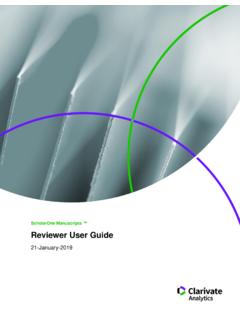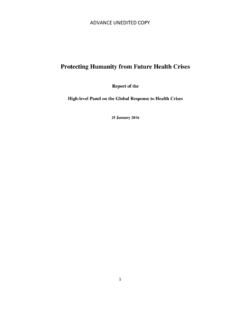Transcription of Review article - Home page of Journal of Physiology and ...
1 Journal OF Physiology AND PHARMACOLOGY 2011, 62, 6, 591-599. Review article KONTUREK1, T. BRZOZOWSKI2, KONTUREK2. STRESS AND THE GUT: PATHOPHYSIOLOGY, CLINICAL CONSEQUENCES, DIAGNOSTIC APPROACH AND TREATMENT OPTIONS. 1 Department of Medicine, Thuringia Clinic Saalfeld, Teaching Hospital of the University Jena, Germany;. 2 Department of Physiology , Jagiellonian University Medical College Cracow, Poland Stress, which is defined as an acute threat to homeostasis, shows both short- and long-term effects on the functions of the gastrointestinal tract.
2 Exposure to stress results in alterations of the brain-gut interactions ("brain-gut axis") ultimately leading to the development of a broad array of gastrointestinal disorders including inflammatory bowel disease (IBD), irritable bowel syndrome (IBS) and other functional gastrointestinal diseases, food antigen-related adverse responses, peptic ulcer and gastroesophageal reflux disease (GERD). The major effects of stress on gut Physiology include: 1). alterations in gastrointestinal motility; 2) increase in visceral perception; 3) changes in gastrointestinal secretion; 4) increase in intestinal permeability; 5) negative effects on regenerative capacity of gastrointestinal mucosa and mucosal blood flow.
3 And 6) negative effects on intestinal microbiota. Mast cells (MC) are important effectors of brain-gut axis that translate the stress signals into the release of a wide range of neurotransmitters and proinflammatory cytokines, which may profoundly affect the gastrointestinal Physiology . IBS represents the most important gastrointestinal disorder in humans, and is characterized by chronic or recurrent pain associated with altered bowel motility. The diagnostic testing for IBS patients include routine blood tests, stool tests, celiac disease serology, abdominal sonography, breath testing to rule out carbohydrate (lactose, fructose, etc.
4 Intolerance and small intestinal bacterial overgrowth. Colonoscopy is recommended if alarming symptoms are present or to obtain colonic biopsies especially in patients with diarrhoea predominant IBS. The management of IBS is based on a multifactorial approach and includes pharmacotherapy targeted against the predominant symptom, behavioural and psychological treatment, dietary alterations, education, reassurance and effective patient- physician relationship. When evaluating for the stress-induced condition in the upper GI tract, the diagnostic testing includes mainly blood tests and gastroscopy to rule out GERD and peptic ulcer disease.
5 The therapy for these conditions is mainly based on the inhibition of gastric acid by proton pump inhibitors and eradication of Helicobacter pylori-infection. Additionally, melatonin an important mediator of brain gut axis has been shown to exhibit important protective effects against stress-induced lesions in the gastrointestinal tract. Finally, probiotics may profoundly affect the brain-gut interactions ("microbiome-gut-brain axis") and attenuate the development of stress-induced disorders in both the upper and lower gastrointestinal tract.
6 Further studies on the brain-gut axis are needed to open new therapeutic avenues in the future. K e y w o r d s : brain-gut axis, stress, gastrointestinal tract, irritable bowel syndrome, microbiota, intestinal bacterial overgrowth, probiotics INTRODUCTION functions of the gastrointestinal tract including gastric secretion, gut motility, mucosal permeability and barrier function, visceral Stress is a ubiquitous condition that affects all people. sensitivity and mucosal blood flow (3-5) (Fig. 1). In recent years According to a definition given by H.
7 Selye, stress is defined as the important interplay between stress and gut microbiota has an acute threat to the homeostasis of an organism. It may be real been shown. Interestingly, bacteria may respond directly to (physical) or perceived (psychological) and posed by events in stress-related host signals. There is evidence that catecholamines the outside world or from within. Importantly, stress evokes can alter the growth, motility and virulence of pathogenic and adaptive responses that serve to defend the stability of the internal commensal bacteria.
8 Thereby, stress may influence the outcome environment and to ensure the survival of the organism (1). of infections by these bacteria in many hosts (6). The gastrointestinal tract and the immune system are This article reviews the impact of stress on the particularly responsive to different stressors. In the past years the gastrointestinal tract. Especially the focus is addressed to the influence of psychosocial and environmental stressors on the role of stress in the pathophysiology of the most common pathogenesis of the gastrointestinal diseases has received diseases of the gastrointestinal tract and to the diagnostic and increased awareness (2).
9 Stress may affect different physiologic therapeutic options to prevent stress-related disorders. 592. Gut motility Secretion Paracellular permeability Fig. 1. Effect of stress on gastrointestinal functions. Visceral Gut microbiota Stress has impact on sensitivity important physiological functions of gut including gut motility, secretion, visceral sensitivity, mucosal Mucosal blood flow. In addition, blood flow stress modifies gut microbiota and enhances paracellular permeability. B. R. A. I. N. - G. U. T. - A.
10 Secretion X. Motility I. Blood flow S. Fig. 2. Impact of stress on brain-gut-microbiota axis. There is a bidirectional gut microbiota interaction between brain- gut axis and gut microbiota. STRESS AND BRAIN-GUT-MICROBIOTA AXIS between the central nervous system (CNS) and the gut was the discovery of the enteric nervous system (ENS) in the nineteenth Concerning the link between stress and gastrointestinal century. ENS (called also "little brain") plays a crucial role in the diseases, most people are aware of the fact that the central regulation of the physiological gut functions including secretion, nervous system and the gut are intimately connected.







